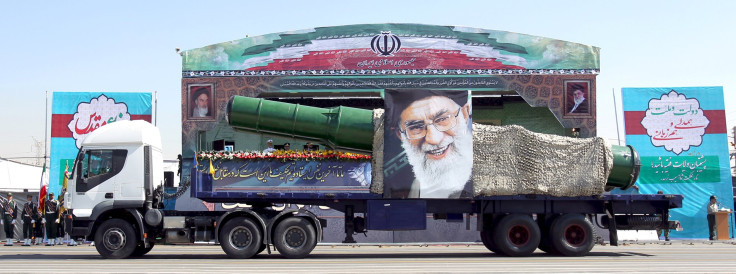US-Iran Relations 2017: Who Will Russia Support In Middle East Conflict? Tensions Growing Between The Countries

The Kremlin expressed its opposition Monday to the White House's aggressive approach toward Russia's Middle East ally, Iran, while hoping to maintain good relations with both countries.
Speaking to reporters, Kremlin spokesperson Dmitry Peskov said he disagreed with Trump's labeling of Iran as "the number one terrorist state" and Washington's accusations that Tehran is responsible for destabilizing the region via its support of allied militias and political movements abroad. Russia and Iran are allied with Syrian President Bashar Assad in the country's nearly six-year civil war and the two nations have grown closer diplomatically in recent years.
"Russia has friendly partner-like relations with Iran, we cooperate on a wide range of issues, value our trade ties, and hope to develop them further," Peskov said, according to Reuters.
"It's no secret for anyone that Moscow and Washington hold diametrically opposed views on many international issues," he added, suggesting that the two nations could still establish better relations.
President Donald Trump has said he supports forging closer ties with Russia, even suggesting the two nations cooperate on international foreign policy issues. However, he has been a vocal critic of Iran's regional influence and the 2015 nuclear treaty signed by the U.S., Iran and a number of other countries under former President Barack Obama. The deal, which was championed by liberals and caused outrage among conservatives in both countries, saw Iran agree to significantly limit its nuclear program in exchange for sanctions relief.
Russia, which Obama routinely criticized on a number of major foreign policy issues, backed the White House's efforts to negotiate the 2015 deal, while Trump blasted the initiative as being too easy on Iran. Trump has since reportedly moved to increase sanctions on Iran and criticized Tehran over a ballistic missile test Sunday, which Iran maintains was not designed to carry a nuclear warhead and therefore did not violate the nuclear treaty. Trump has also pledged to renegotiate the multilateral deal, which Iranian leadership maintained is not possible.
"Don't try to fix what isn't broken," Russian Deputy Foreign Minister Sergei Ryabkov told Moscow-based Security Index Journal in an interview Monday. "It would be an undesirable and negative turn of events that would only serve to pour oil on the flames in the Middle East."
Moscow has so far tried to improve its relationship with Washington under Trump's administration, while maintaining its strategic partnership with Tehran. Russian Foreign Minister Sergei Lavrov revealed to reporters Monday that he believed Iran should be part of an international coalition dedicated to fighting the Islamic State group, also known as ISIS. Russia has previously extended the same offer to Trump, who has said international cooperation to combat ISIS should be a priority.
© Copyright IBTimes 2024. All rights reserved.












